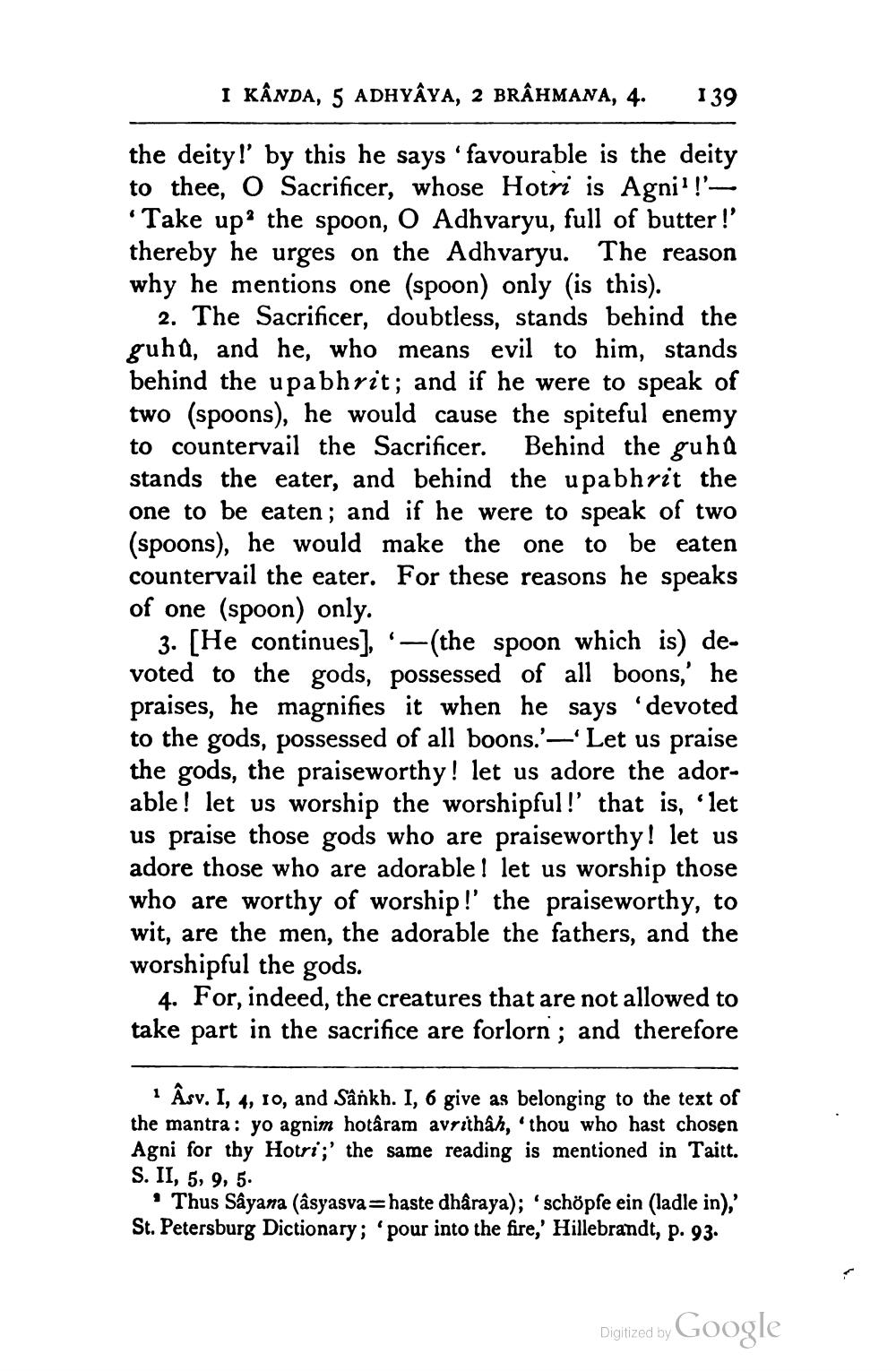________________
I KANDA, 5 ADHYAYA, 2 BRÂHMANA, 4. 139
the deity!' by this he says 'favourable is the deity to thee, O Sacrificer, whose Hotri is Agni'!'— 'Take up the spoon, O Adhvaryu, full of butter!' thereby he urges on the Adhvaryu. The reason why he mentions one (spoon) only (is this).
2. The Sacrificer, doubtless, stands behind the guhû, and he, who means evil to him, stands behind the upabhrit; and if he were to speak of two (spoons), he would cause the spiteful enemy to countervail the Sacrificer. Behind the guhû stands the eater, and behind the upabhrit the one to be eaten; and if he were to speak of two (spoons), he would make the one to be eaten countervail the eater. For these reasons he speaks of one (spoon) only.
3. [He continues], '-(the spoon which is) devoted to the gods, possessed of all boons,' he praises, he magnifies it when he says 'devoted to the gods, possessed of all boons.'-'Let us praise the gods, the praiseworthy! let us adore the adorable! let us worship the worshipful!' that is, 'let us praise those gods who are praiseworthy! let us adore those who are adorable! let us worship those who are worthy of worship!' the praiseworthy, to wit, are the men, the adorable the fathers, and the worshipful the gods.
4. For, indeed, the creatures that are not allowed to take part in the sacrifice are forlorn; and therefore
1Âsv. I, 4, 10, and Sânkh. I, 6 give as belonging to the text of the mantra: yo agnim hotâram avrithâh, 'thou who hast chosen Agni for thy Hotri;' the same reading is mentioned in Taitt. S. II, 5, 9, 5.
Thus Sâyana (âsyasva-haste dhâraya); 'schöpfe ein (ladle in),' St. Petersburg Dictionary; 'pour into the fire,' Hillebrandt, p. 93.
Digitized by Google




